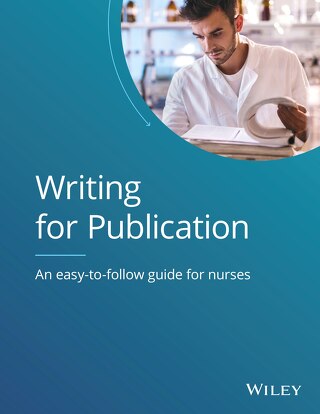finding-time-to-publish-as-a-medical-student-6-tips-for-success
May 26, 2015
These two questions have been my personal roadblocks to writing, yet I feel they might be common to other medical students as well. So, I thought I’d share what I’ve learned from my own experience. Let’s get started!
1. Devote 1-2 hours a week to the writing process.
Make a schedule and do your best to stick to it. If you need some more incentive, build in a small reward system to stay motivated. If you choose Sunday morning to do your writing or background research, keep that time blocked out in your schedule over the weeks you anticipate working on the project.
2. Determine the best type of paper you are capable of writing within your time constraints.
This is where some balancing takes place. You should honestly assess how much time you can dedicate to doing research and writing a quality paper. Medical school coursework should remain your top priority, but as far as other professional experiences are concerned, publishing should rank highly.
One misconception I had about publishing is that the only way medical students can publish is through primary research. Although this can be an excellent way to generate new findings, it is by no means the only research that deserves to be published. Generally, secondary research consumes less time by synthesizing existing data with novel insight. One example of this would be to write a paper analyzing quality improvement data before and after a change takes place. Reviews and meta-analyses are also valuable forms of scholarly communication that might take longer to complete, but can be adapted to a medical student’s busy schedule. Other types of papers that can be managed within a tight schedule include expert opinion, case reports, patient education material, and health policy.
3. Select a topic.
There will be times the type of paper you select to write constrains you to a certain subject matter. When this is not the case, the obvious suggestion would be to find a topic that genuinely interests you—one you (mostly) understand and feel comfortable writing about. If you are taking on a project with minimal supervision, be weary of topics that are overly technical and complex. Keep your research question focused and your field of interest narrowed. This will help to limit the amount of time you spend performing background research and clarifying ambiguous topics. Ideally, you will produce a high quality paper without sacrificing too much of your time.
4. Review the literature.
The background research you extract from a literature search will lay the landscape of your work. Is your topic important and worthy of being reported to the medical community? Is the literature already saturated with papers on your selected topic? If this is the case, you might think of approaching it with a unique perspective. If you want to do a review, make sure that no other reviews have been published in the past ten years, otherwise the paper might not be worth your time.
After compiling data, analyzing trends, drawing conclusions, and connecting your results to the bigger picture, you will need to write it all down. Maintain the schedule you set out for yourself at the beginning of this endeavor. Keep track of what you hope to achieve each week and strive to make tangible progress. At this point it is important to stay motivated and focused.
5. Ask a mentor or faculty member to review your work.
Find someone who thoroughly understands the topic you are writing on and would be willing to critique the content of your work. Hopefully you have a good professional relationship with this person prior to asking them for their time. This step makes you vulnerable to criticisms, so I will tell you what my teacher told me: cultivate humility. Take the good, the bad, and the ugly and use it to transform your paper. If you need someone else to read it over, find your college friend who majored in English to help you eliminate awkward wording and improve flow in your writing.
Amid the stress that accompanies medical school, taking on additional criticisms may seem daunting. Try your best to adapt to the suggestions of mentors and advisors. It will take patience, and most likely multiple revisions, before your paper is ready for submission. The editing phase of writing tends to absorb more time than people expect, so plan for this at the outset of your project. Keep working towards your end point, but step back if you begin to feel frustrated or lose sight of your goal. As a medical student, writing will not be your only commitment, so maintaining a positive outlook to bring to the other facets of your life is important.
6. Finally, select an appropriate journal and submit.
Look into which journals are more likely to accept your specific paper. Read the instructions to authors on the publisher’s webpage. Submit to a highly ranked journal, then if/when you are rejected, submit to a slightly lesser ranked journal. Some editors may provide feedback on how you can improve your submission. If this is the case, consider these recommendations before submitting your paper to another journal.
The greatest challenge of publishing while in medical school is making writing a priority. However, by sustaining your commitment to publish, this endeavor will benefit you as a medical student as well as a future physician.
Source: wavebreakmedia/Shutterstock














